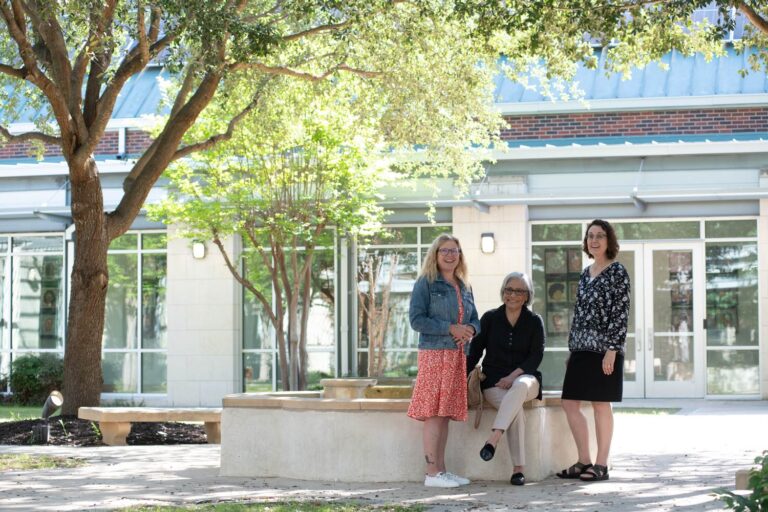There is something organic about the blessedness and brokenness of family relationships that teach us how to become more Eucharistic people.
In her excellent book on everyday family spirituality, titled Sacred Dwelling, Wendy Wright, says that we need to develop a greater appreciation for the family, the home and the couple to uncover a spirituality that will speak to and nourish the majority of Christians. There is something real about family as a domestic church that can teach us how to become a Church as gathered communities that are more hospitable. There is something organic about the blessedness and brokenness of family relationships that teach us how to become more Eucharistic people. There is something very profound about the mystery and sacramental value of intimacy in a couple that can teach us to be more vulnerable and transparent in interdependent relationships. This type of intimacy leaves room for change and growth as it confronts our cultural tendencies for rigid or rugged individualism.
Wright speaks of the home as more than just a physical house. It is a place infused with the sacred; our experience of family is the domestic Church. She says that the foundation can represent the mystical dimension of Christians’ homes; the invisible reality, which shows how, God’self interweaves into every fabric of life waiting to be perceived. It is the incarnational mystery we celebrate at Christmas. The other is the prophetic dimension, the roof of the house that embodies the “more”; the place where the family feels called to be more than what they are in the present. It is about aspirations of living in line with the highest hopes and the radical restructuring Christian life calls forth. Liturgically, this is often experienced at the Passiontide and through the Easter mystery.
In another book, Seasons of a Family’s Life, Wendy Wright highlights how given enough effort and awareness, the contemplative aspect of storytelling, eating at the “family altar,” and developing a sense of sacred place invest family life with a depth akin to but different from monastic living. I especially appreciate her reflections on the role of narrative, ritual, and location and how they act as revelers of values and meaning. She says that the many stories we tell carry deep meaning that contributes to a specific identity. For example, the story of a dad who spoiled the new rug as a child at Christmas with the ink of a toy printer set. The story of the mother of an adopted child who retells the harrowing tale of her trip to China to pick up her little girl.
Like the big Christian story, each smaller story shapes people and generations and builds character and coherence. They reveal how we make life choices. Her chapter on family ritual is a gem. In it, she speaks of how intimate family rituals build and sustain the community. She mentions that meals, family hugs, late-night chats by the bedside, and yearly vacations contribute to a renewed sense of order. They create exchanges and bonds on a physical, intellectual, emotional, and spiritual level.
All of us have first learned about community, meaning making, and attachments in our families. Family is the place where we were taught the art of living from a deeper place. It is where we heard God speaking to us and discovered our ability to share and participate in the grand Christian faith narrative. All of these have shown how we developed seeds of a contemplative stance in our everyday life. St. Ignatius of Loyola called it “finding God in all things.” Of course, none of this means that sacramental life, daily prayer, spiritual readings, retreats, and spiritual direction are less important. You do not need to be a “professional religious” to be religious and spiritual.
It means that everyday spiritual life can also be found and experienced through the family if one takes the time and makes an effort to do so. Family and religious practice are not mutually exclusive. They feed on one another. As Pope Francis puts it in his encyclical Amoris Laetitia: “The Church is good for the family and the family good for the Church” (#87). Do we realize what this truly means in our experience of family? In our life as Church? Each one of us is called to uncover the spiritual and mystical aspect of our lives through deeper noticing and a greater willingness to expand our view of living religiously beyond our Sunday practice and the traditional model of monastic life. Our house walls, our tables, our bedrooms, our meals, our family relationships are all places of spiritual and religious connection and meaning.

Fr. Daniel Renaud, OMI is a priest, religious and itinerant preacher with the Missionary Oblates of Mary Immaculate of the US province. Mentored by Fr. Ronald Rolheiser, OMI he ministers from the campus of the Oblate School of Theology (OST) in San Antonio, Texas. Fr. Renaud has degrees and training in drama education, theology, pastoral ministry, psychodrama and spiritual direction. He has preached retreats to priests, men and women religious, deacons and wives and lay people on desire and mysticism, 12 steps recovery, Ignatian spirituality and Jungian shadow work, ecological conversion, the Beatitudes and human development and grief and life transitions. Fr. Renaud is a member of Spiritual Director International (SDI). His areas of interest are resilience, finding one’s mission and purpose in life, spiritual healing of traumatic relationships and everyday mysticism.



